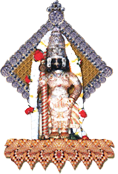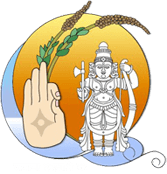आश्चर्यवत् पश्यति कश्चित् एनं आश्चर्यवत् वदति तथ एव च अन्यः
आश्चर्यवत् च एनं अन्यः शृणॊति श्रुत्वा अपि एनं वॆद न च एव कश्चित् ॥ २.२९ ॥
ಆಶ್ಚರ್ಯವತ್ ಪಶ್ಯತಿ ಕಶ್ಚಿತ್ ಏನಂ ಆಶ್ಚರ್ಯವತ್ ವದತಿ ತಥ ಏವ ಚ ಅನ್ಯಃ
ಆಶ್ಚರ್ಯವತ್ ಚ ಏನಂ ಅನ್ಯಃ ಶೃಣೋತಿ ಶ್ರುತ್ವಾ ಅಪಿ ಏನಂ ವೇದ ನ ಚ ಏವ ಕಶ್ಚಿತ್ || ೨.೨೯ ||
Ashcharyavat pashyati kashchit EnaM Ashcharyavat vadati tatha Eva cha anyaH
Ashcharyavat cha EnaM anyaH shRuNOti shrutvA api EnaM vEda na cha Eva kashcit || 2.29 ||
Someone perceives Him as a wonder; someone speaks of Him as a wonder; someone hears of Him as a wonder; yet having heard, one may not know Him at all.
He who knows this soul to be only a likeness of the eternal and the unborn Lord, to be absolutely under the control of the Lord, such a person is indeed a wonder. Similarly a person who speaks of or hears of the jeeva as such is indeed very rare to meet with.
That is, it is hard to find him who understands that the jeeva is only a likeness of the Lord. Then who could possibly understand and describe the glorious nature and powers of the Lord?
Ashcharyavat pashyati kashchit EnaM Ashcharyavat vadati tatha Eva cha anyaH
Ashcharyavat cha EnaM anyaH shRuNOti shrutvA api EnaM vEda na cha Eva kashcit || 2.29 ||
1. in this verse EnaM refers to both paramatma and jIva.
2. kashchit = someone… This word is used to how that NOT every jIva is eligible, but few qualified jIvas.
3. The words shrutvA api EnaM vEda na cha Eva kashcit shows that Shri Hari cannot be knowm completely by anybody.


